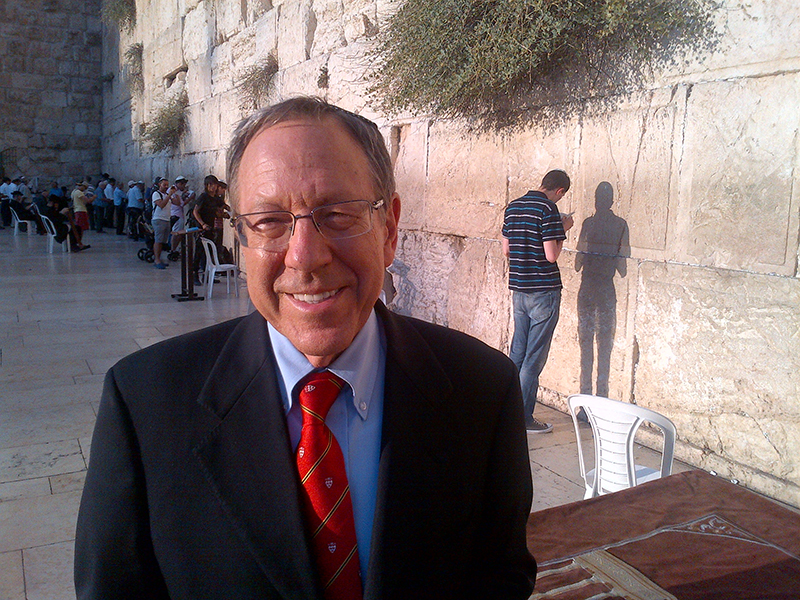Saudi Arabia’s reaction to Canada’s call for the release of two activists and the easing of arrests of others was “ferocious” and “utterly over-the-top,” but also self-defeating, feels international human rights lawyer and former justice minister Irwin Cotler.
Cotler, legal counsel to imprisoned Saudi blogger Raif Badawi, told The CJN the dispute between Canada and Saudi Arabia is “almost inexplicable,” given that Ottawa’s statements were nothing new.
The full-blown spat erupted earlier this month when Foreign Affairs Minister Chrystia Freeland tweeted that Canada was “very alarmed” to learn that Samar Badawi, Raif Badawi’s sister, had been imprisoned in Saudi Arabia. “Canada stands together with the Badawi family in this difficult time, and we continue to strongly call for the release of both Raif and Samar Badawi,” Freeland tweeted.
The next day, a tweet from Global Affairs said Canada was “gravely concerned about additional arrests of civil society and women’s rights activists in Saudi Arabia, including Samar Badawi. We urge the Saudi authorities to immediately release them and all other peaceful human rights activists.”
READ: IRWIN COLTER URGES ISRAEL TO REVERSE POLICY ON MIGRANTS
The tweets incensed the Saudi regime, which responded by expelling Canada’s ambassador, selling off Canadian assets and freezing new investment, ending flights to Canada on its national airline, ending purchases of Canadian wheat and barley, and pulling some 16,000 Saudi students from Canadian colleges and universities, including almost 800 medical residents and fellows.
Cotler, who has represented many political dissidents, including Soviet Jewish refuseniks, and served as a Liberal MP for 16 years, said the fierce reaction was a warning to the world that the kingdom will not tolerate any interference in its internal affairs.
The Saudi Crown Prince Mohammed bin Salman “was saying that he will determine the pace of reform – it will not be dictated from the outside,” Cotler said. “It was sending a message to deter other countries from doing it, but also to bolster his own internal standing by saying, ‘I’m in control. I don’t succumb to pressure.’ ”
What makes the dispute “impossible to understand and so surprising,” Cotler said, is that the Badawis are in prison for calling for the very changes that the reform-minded crown prince seems to support.
Raif Badawi was arrested in June 2012 and later sentenced to 1,000 lashes and 10 years in jail for criticizing Saudi clerics. But, said Cotler, he had called for the same things – a more open and moderate society – that the prince has been advocating.
His sister, Samar Badawi, was arrested last month “even though she had advocated for the right to drive, which the crown prince himself had implemented months before,” Cotler added.
“Both continue to languish in prison for [advocating] the very reforms that the crown prince had advocated.”
Another reason for the Saudi response is a resurgent global authoritarianism.
“Saudi Arabia feels comfortable in the culture and company of authoritarians,” Cotler said, noting that Russia, Egypt and Bahrain supported the Saudis in its dispute with Canada “almost as if it had been strategically organized. The community of authoritarians stay together.”
The Saudis were also comforted by the fact that Canada received no solace from the world’s major democracies, he said.
As for Canada’s tweets, they were neither new nor novel, Cotler said, and did not breach international protocol.
He said John Baird, the former Conservative government’s foreign minister, called for Raif Badawi’s release years ago in a tweet, calling the case a “violation of human dignity.”
The United Nations High Commissioner for Human Rights and the European Union have issued similar statements calling for the release of activists from Saudi prisons, Cotler noted.
Canada’s latest tweets “came at the end of the process, not at the beginning.”
Cotler said the Saudi reaction was “self-defeating” because it hurt thousands of the nation’s own students and was “at variance” with the prince’s own reforms.







